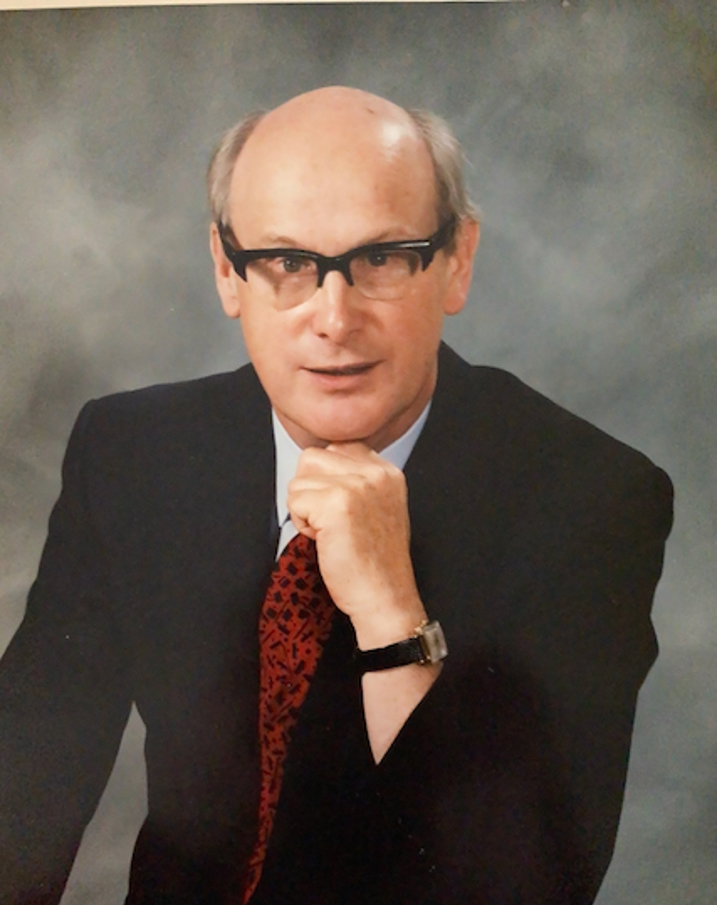William Duncan
William (Bill) Duncan MBChB DMRT FRCR FRCP(E) FRCS FRCPC
Professor William (Bill) Duncan died from metastatic cancer in Edinburgh on the 29th of September 2023. He was 93.
Bill and his team provided much of the evidence that eventually scuppered the controversial attempt to spend £6 million of public money to fund a cyclotron for fast neutron therapy at St Thomas’ Hospital London: a decision made without recourse to expert advice.
Bill was one of the outstanding oncologists of his era. At retirement, in 1995, he was Professor of Radiation Oncology at the University of Edinburgh, a post he had held since 1971 - apart from a 5-year interval (1985-1990) spent as Chief of Radiation Oncology at the Princess Margaret Hospital in Toronto.
Bill was a gifted and compassionate clinician who had practiced evidence-based medicine and person-centred care long before these terms were invented. He had little truck with the fashion for naming such concepts, to him they simply described a combination of critically appraising the relevant information, common sense, and basic humanity: qualities he believed to be fundamental to the practice of medicine.
_______________________________
29 April 1930 to 29 September 2023
Bill was born in Aberdeen on the 29th of April 1930. He was educated at Morrison’s Academy, Crieff and at Aberdeen Grammar School. He graduated MBChB from Aberdeen University in 1954. He met his future wife, Joyce Gellatly, at university and they were together for the next 75 years. They had three sons, Gordon, Graeme, and Ian.
After two years of National Service, he joined Ralston Paterson’s department at the Christie Hospital in Manchester. Having completed his training there he was appointed consultant in 1964 and remained in Manchester until his appointment to Edinburgh in 1971.
Bill was ahead of his time. When he arrived in Edinburgh he cultivated close links with the surgeons. These relationships evolved into joint clinics and joint theatre sessions, thereby prefiguring the multidisciplinary team (MDT) approach that is now a standard feature of the management of patents with cancer.
Bill published extensively on many aspects of cancer and its treatment. His international reputation primarily rested upon the studies of fast neutron therapy that he carried out at the MRC cyclotron unit in Edinburgh. He recruited a strong team of physicists, engineers, radiographers, and oncologists to carry out randomised controlled clinical trials. He insisted that there be funding for a statistician as a permanent part of the team. These studies, conceived and meticulously supervised by Bill, failed to confirm the benefits that had previously been claimed for neutron therapy. This work was acknowledged in 1987 when the British Institute of Radiology awarded the Röntgen Prize to Bill and his team.
In 1985 Bill left Edinburgh to become Chief of Radiation Oncology at Princess Margaret Hospital (PMH), Toronto. Bill re-energised the department at PMH. He recognised the latent talent within the younger members of the department and encouraged and promoted their interests. In 1990 he returned to his previous post in Edinburgh and held it until he retired in 1995.
Bill’s retirement was clouded by Joyce’s dementia. For many years he cared for her at home. Following her admission to a care home he visited her every afternoon. Bill’s Christian faith sustained him throughout his life. It was not something to which he drew attention. His faith was immensely strong and entirely personal.
A final image: a dreich Edinburgh afternoon, the light fading fast; Bill, aged 92, standing alone at the city’s edge waiting for the first of the two buses that would take him into town to visit Joyce. She probably would not recognise or remember him. Standing there, not because it made any objective sense, but because, after 75 years, it was the right thing to do.
